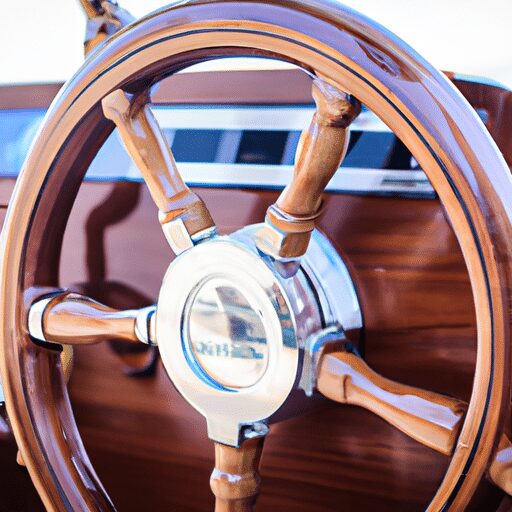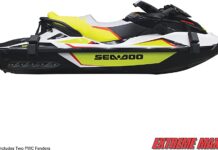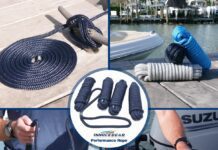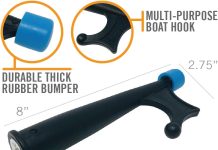Have you ever wondered what the person in control of a boat is called? Well, wonder no more! In this article, we will uncover the answer to this age-old question. Join us as we explore the fascinating world of boating and discover the correct terminology for the skilled individuals steering these magnificent vessels. So, hop on board and let’s set sail on this exciting journey of knowledge!
Boat Driver Positions
Boating is a popular and exciting activity enjoyed by many. Whether you’re sailing the open waters, cruising along a river, or simply exploring a nearby lake, it’s important to have a skilled and qualified boat driver at the helm. In the world of boating, there are several different positions that individuals can hold to operate and navigate a boat. Here are some of the most common boat driver positions:
Captain
The captain is the highest-ranking boat driver position. They are responsible for overseeing all aspects of the boat’s operation and ensuring the safety of passengers and crew. Captains have extensive experience and knowledge of navigating different waterways, dealing with emergencies, and following maritime regulations. They are often the ones making crucial decisions and leading the crew.
Helmsman
The helmsman is the person who steers the boat while it is in motion. They are responsible for maintaining the correct course and ensuring that the boat follows proper navigation routes. Helmsmen need to have a good understanding of the boat’s controls and be skilled in maneuvering the vessel through various conditions.
Pilot
A pilot is a highly skilled boat driver who navigates large ships through difficult or congested waterways. They are experts in the specific waterways they operate in and have an intricate knowledge of the local tides, currents, and other navigational challenges. Pilots often work in conjunction with the captain to safely guide the ship through treacherous areas.
Coxswain
The term “coxswain” is commonly used in the context of rowing teams, but it can also refer to a boat driver in the maritime industry. A coxswain is responsible for operating and steering small boats, often used for rescue missions or transporting crew members to larger vessels. They need to have excellent communication skills and be able to make quick decisions in emergency situations.
Skipper
A skipper is a term often associated with smaller recreational boats. They are responsible for the overall operation and safety of the boat, similar to a captain. Skippers are typically knowledgeable about the local waterways and are skilled in navigating and maintaining the boat.
Steersman
A steersman is a boat driver whose primary responsibility is to steer and control the boat. This position is often found on larger ships or vessels where multiple drivers are needed. Steersmen work closely with the captain or pilot to ensure the boat is steered accurately and safely.
Driver
The term “driver” is a general term used to refer to anyone who operates a boat. It can apply to different positions depending on the context and size of the boat. In the recreational boating industry, a driver is typically someone who operates small pleasure boats for leisure activities.
Operator
Similar to the term “driver,” the term “operator” is a broad term used to describe someone who operates a boat. Operators can be found in various sectors of the maritime industry, ranging from commercial shipping to fishing boats. Their responsibilities include steering, operating, and maintaining the boat.
Mariner
The term “mariner” refers to someone who works at sea, usually as a crew member on a ship or boat. While mariners may not always be the main boat driver, they play a vital role in ensuring the smooth operation of the vessel. They may assist the captain or helmsman in navigating, operating, and maintaining the boat.
Nautical Navigator
A nautical navigator is a boat driver who specializes in navigating and plotting the course of a boat. They have a deep understanding of nautical charts, compass navigation, and electronic navigation systems. Nautical navigators play a crucial role in ensuring that the boat safely reaches its destination.
Qualifications for Boat Drivers
Being a boat driver requires a combination of skills, knowledge, and experience. Here are some of the key qualifications a boat driver should have:
Boating License
To operate a boat legally, boat drivers are required to have a boating license or certification, depending on the country or state they are in. This license typically involves completing a boating safety course and passing an exam to demonstrate knowledge of boating laws, safety procedures, and navigational rules.
Experience
Experience is crucial for boat drivers, especially those working in more demanding and high-stakes positions. Many boat drivers gain experience by working as crew members or operating smaller boats before moving on to larger or more specialized vessels. Practical experience allows boat drivers to develop the skills and confidence needed to navigate different waterways and handle various situations.
Knowledge of Maritime Laws
Boat drivers must have a solid understanding of maritime laws and regulations that apply to their specific area of operation. This includes knowing the right-of-way rules, speed limits, and navigation markers. Knowledge of maritime laws ensures that boat drivers operate their vessels safely and in compliance with legal requirements.
Training and Certification
In addition to a boating license, boat drivers often undergo training and obtain certifications in specific areas of boating. These certifications can include courses in emergency response, navigation, boat handling, and safety procedures. Training and certification programs help to enhance a boat driver’s skills and knowledge, ensuring they are prepared for a variety of scenarios.
Safety Skills
Safety is of utmost importance when operating a boat. Boat drivers should have the necessary safety skills to ensure the well-being of passengers and crew members. This includes knowledge of life-saving techniques, proper use of safety equipment, and understanding emergency procedures. Boat drivers should be prepared to handle any potential risks or hazards that may arise during their voyage.
Navigational Skills
Boat drivers need to have strong navigational skills to safely navigate waterways and reach their intended destinations. This includes the ability to read nautical charts, use navigation instruments, and interpret navigational aids such as buoys and beacons. Navigational skills ensure that boat drivers can plan routes, avoid obstacles, and accurately determine their position at all times.
Radio Communication Skills
Effective communication is essential for boat drivers, especially when operating in busy waterways or emergency situations. Boat drivers should be proficient in using radio communication equipment to communicate with other vessels, harbor masters, or emergency services. Clear and concise communication helps to ensure safe navigation and collaboration with other boats or authorities.
Weather Awareness
Weather conditions play a significant role in boating safety. Boat drivers should have a good understanding of weather patterns, how to interpret weather forecasts, and recognize signs of changing weather while on the water. Awareness of weather conditions allows boat drivers to make informed decisions and take appropriate actions to ensure the safety of everyone on board.
Emergency Response Training
Boat drivers should undergo emergency response training to handle unexpected situations or emergencies that may arise. This training covers procedures for handling fires, medical emergencies, man-overboard situations, and distress calls. Being prepared for emergencies can mean the difference between a minor incident and a life-threatening situation.
First Aid and CPR Certification
Boat drivers should also hold current first aid and CPR certifications. These certifications ensure that boat drivers can provide immediate medical assistance in case of an injury or medical emergency while on the water. First aid and CPR skills are valuable in situations where professional medical help may be unavailable for an extended period.
Boat Driver Responsibilities
Being a boat driver comes with a range of responsibilities. Whether it’s a small pleasure boat or a large commercial vessel, boat drivers have a duty to ensure the safety of passengers, crew, and other people on the water. Here are some of the key responsibilities of a boat driver:
Operating and Steering the Boat
The primary responsibility of a boat driver is to safely operate and steer the boat. They are responsible for starting and stopping the engine, controlling the speed, and handling the boat’s maneuvers. Boat drivers must have a good understanding of the boat’s controls, such as the throttle, steering wheel, and trim tabs.
Following Maritime Regulations
Boat drivers are responsible for following maritime regulations and laws that apply to their specific area of operation. This includes adhering to speed limits, right-of-way rules, and navigation regulations. By following these regulations, boat drivers can ensure the safety of their passengers, other vessels, and themselves.
Ensuring Passenger Safety
The safety of passengers is a top priority for boat drivers. They should ensure that all passengers are provided with and wearing the necessary safety equipment, such as life jackets. Boat drivers should also be attentive to passenger behavior and take proactive measures to prevent accidents or injuries.
Navigating Waterways and Obstacles
Boat drivers must be able to navigate effectively through different waterways and around obstacles. This includes following navigational aids, such as buoys and beacons, and using navigation instruments, such as GPS or radar. Boat drivers need to be aware of their surroundings and have the skills to navigate safely in both familiar and unfamiliar waters.
Monitoring Weather Conditions
Weather conditions can change rapidly on the water, and boat drivers need to be vigilant in monitoring weather forecasts and observing signs of changing weather. They should have the ability to assess weather conditions, such as wind speed, tide changes, or storm systems, and take appropriate action to ensure the safety of the boat and its occupants.
Maintenance and Inspection
Boat drivers are responsible for the general maintenance and inspection of the boat before and after each voyage. This includes checking the engine, hull, electrical systems, safety equipment, and navigation instruments. Regular maintenance and inspection help prevent mechanical failures and ensure the boat is in optimal condition for safe operation.
Emergency Response
In the event of an emergency, boat drivers should be prepared to implement emergency response procedures and take appropriate actions to ensure the safety of everyone on board. This may include initiating distress calls, executing evacuation plans, providing first aid, or coordinating with emergency services.
Communication with Passengers and Crew
Effective communication is essential for a boat driver. They are responsible for providing clear instructions to passengers and crew members, ensuring they understand safety procedures and any specific instructions related to the voyage. Boat drivers should also be available for questions or concerns from passengers and maintain open lines of communication throughout the journey.
Providing Information and Assistance
Boat drivers often serve as a source of information and assistance to passengers. They can provide information about points of interest, local attractions, or historical landmarks along the route. Boat drivers should be courteous, friendly, and willing to assist passengers with any questions or needs that may arise during the voyage.
Problem-Solving and Decision-Making
Boat drivers must possess strong problem-solving and decision-making skills. They need to assess situations quickly, identify potential risks or hazards, and make informed decisions to ensure the safety and well-being of everyone on board. Being able to think critically and react calmly in challenging situations is essential for a boat driver.
Different Types of Boat Drivers
Boat driving careers offer a wide range of opportunities in various sectors of the maritime industry. Here are some different types of boat drivers and the specific roles they perform:
Commercial Boat Driver
Commercial boat drivers operate vessels used in the transportation of goods or passengers as part of the maritime transportation industry. They may work for shipping companies, ferry services, or cruise lines. Commercial boat drivers are responsible for safely navigating waterways, adhering to schedules, and ensuring the comfort and safety of the passengers or cargo.
Recreational Boat Driver
Recreational boat drivers operate small pleasure boats used for recreational purposes, such as fishing, water-skiing, or cruising. They may work independently, renting their boats to individuals, or be employed by marinas or boat rental companies. Recreational boat drivers need to have a good understanding of the local waterways and be able to provide instruction and guidance to passengers.
Fishing Boat Captain
Fishing boat captains are responsible for operating and navigating fishing vessels used for commercial fishing activities. They oversee fishing operations, make decisions regarding fishing locations, and ensure the safe transportation and handling of the catch. Fishing boat captains need to have a good understanding of fishing techniques, local fishing regulations, and navigation in different weather and sea conditions.
Charter Boat Captain
Charter boat captains operate boats that are chartered or rented for various purposes, such as fishing charters, sightseeing tours, or leisure cruises. They are responsible for providing a safe and enjoyable experience for their clients. Charter boat captains need to have good customer service skills, local knowledge, and the ability to adapt to the preferences and needs of their customers.
Tour Boat Operator
Tour boat operators provide guided tours on boats, showcasing local attractions, landmarks, or natural beauty. They are responsible for narrating the tour, providing information about the sights, and ensuring the safety of the passengers. Tour boat operators should have strong communication skills and a passion for sharing knowledge about the local area.
Tugboat Operator
Tugboat operators maneuver and assist larger vessels in ports, harbors, or narrow waterways. They play a crucial role in assisting with docking, undocking, and towing operations. Tugboat operators need to have excellent boat handling skills and be able to coordinate their maneuvers with the captain or pilot of the assisted vessel.
Ferry Boat Captain
Ferry boat captains operate vessels that transport passengers and vehicles across bodies of water, such as rivers, lakes, or straits. They are responsible for coordinating loading and unloading operations, adhering to schedules, and ensuring the safety of passengers and vehicles. Ferry boat captains need to have good organizational skills, the ability to handle large volumes of passengers and vehicles, and familiarity with the specific waterway they operate in.
Sailboat Helmsman
Sailboat helmsmen are boat drivers who specialize in operating sailboats. They are responsible for hoisting and trimming sails, steering the boat, and manipulating the sail to take advantage of the wind. Sailboat helmsmen need to have a deep understanding of sailing principles, navigation using wind and currents, and the ability to safely handle sails under various wind conditions.
Yacht Captain
Yacht captains are responsible for operating and managing luxury yachts used for leisure or charter purposes. They oversee all aspects of yacht operations, including navigation, maintenance, and guest services. Yacht captains need to have extensive experience, strong leadership skills, exceptional customer service abilities, and the ability to create a luxurious and comfortable environment for their guests.
Canal Boat Operator
Canal boat operators navigate narrow canal systems, often used for leisure or tourism purposes. They are responsible for steering the boat through locks, bridges, and other obstacles specific to canals. Canal boat operators need to have a deep understanding of canal navigation rules, lock procedures, and the ability to handle boats in confined spaces.
Boat Driver Training and Education
To become a boat driver, individuals often need to undergo specific training and education to build the necessary skills and knowledge. Here are some of the common avenues for boat driver training and education:
Boat Driver Training Schools
Boat driver training schools offer comprehensive programs designed to train individuals in boat operation, navigation, safety procedures, and maritime laws. These schools provide hands-on training, classroom instruction, and practical experience to prepare students for a career as a boat driver. Training schools may offer programs for various types of boats, such as recreational boats, fishing vessels, or commercial ships.
On-the-Job Training
Many boat drivers gain their skills and experience through on-the-job training. They may start as deckhands or crew members on boats and learn the necessary skills and knowledge from experienced boat drivers. On-the-job training allows individuals to gain practical experience and hands-on skills while working alongside seasoned professionals.
Courses and Certifications
Boat drivers can also enhance their skills and knowledge by taking courses and obtaining certifications in specific areas of boating. These courses may cover topics such as navigation, boat handling, emergency response, or specific regulations. Certifications can demonstrate a boat driver’s expertise and commitment to ongoing professional development.
Boating Safety Courses
Boating safety courses focus on teaching individuals the necessary safety procedures and precautions to ensure safe boating. These courses cover topics such as the correct use of safety equipment, navigation rules, emergency procedures, and the dangers of alcohol or drug use while boating. Boating safety courses are often a requirement for obtaining a boating license.
Boating Skills Courses
Boating skills courses are designed to enhance a boat driver’s practical skills and knowledge. These courses may include hands-on training in boat handling, maneuvering, docking, or navigation techniques. Boat drivers can choose courses that align with their specific area of interest or specialization, such as sailing, fishing, or commercial boating.
Navigation Courses
Navigation courses focus on teaching boat drivers how to navigate waterways using various tools and techniques. These courses cover topics such as chart reading, compass navigation, GPS use, and understanding navigational aids. Navigation courses are essential for boat drivers who need to safely navigate unfamiliar waters or challenging conditions.
Maritime Academies
Maritime academies offer comprehensive programs that prepare individuals for a career in the maritime industry. These academies provide a combination of classroom instruction and practical training on ships or simulators. Graduates of maritime academies often hold degrees or certifications in maritime-related fields such as marine transportation, marine engineering, or navigation.
Coast Guard Licensing
For boat drivers operating certain types of vessels, such as commercial ships or large passenger boats, obtaining a Coast Guard license may be a requirement. Coast Guard licenses involve meeting specific training, experience, and examination requirements set by the Coast Guard. These licenses demonstrate a boat driver’s competency to operate vessels in accordance with maritime regulations and safety standards.
Job Opportunities for Boat Drivers
There are diverse job opportunities available for boat drivers in various sectors of the maritime industry. Here are some of the industries and sectors that offer employment opportunities for boat drivers:
Maritime Transportation Industry
The maritime transportation industry offers a wide range of job opportunities for boat drivers. This includes working for shipping companies, container terminals, or logistics companies. Boat drivers in the maritime transportation sector often operate larger vessels used for transporting cargo or passengers on long-distance voyages.
Commercial Shipping Companies
Commercial shipping companies require boat drivers to operate their vessels, ensuring the safe and efficient transportation of goods across domestic or international waters. Boat drivers may work on container ships, tanker ships, or bulk carriers. They are responsible for navigating the vessel, adhering to shipping schedules, and complying with international shipping regulations.
Tourism and Hospitality
The tourism and hospitality industry provides employment opportunities for boat drivers in various capacities. This includes working for tour operators, cruise lines, or resorts. Boat drivers in the tourism sector may operate sightseeing boats, leisure cruise vessels, or charter boats, providing guests with memorable experiences on the water.
Fisheries and Aquaculture
Boat drivers play an essential role in the fisheries and aquaculture industry. They operate fishing vessels used for commercial fishing activities, such as catching fish, shellfish, or other marine resources. Boat drivers in this sector need to have a good understanding of fishing techniques, equipment, and navigation in different marine environments.
Water Sports and Recreation
Boat drivers have opportunities to work in the water sports and recreation industry. This includes operating boats for activities such as water skiing, wakeboarding, parasailing, or scuba diving. Boat drivers in this sector need to have excellent boat handling skills and a passion for water-based activities.
Ferry and Cruise Lines
Ferry and cruise lines employ boat drivers to operate vessels that transport passengers across bodies of water. Boat drivers in the ferry industry are responsible for providing reliable and safe transportation for commuters or travelers. Cruise lines require boat drivers to operate large cruise ships, ensuring a smooth and enjoyable experience for passengers on their journey.
Yacht and Boat Rental Companies
Yacht and boat rental companies provide opportunities for boat drivers to operate luxury yachts, sailboats, or powerboats for clients seeking recreational experiences on the water. Boat drivers in this sector should have excellent customer service skills and knowledge of popular cruising destinations.
Government Agencies
Government agencies, such as coastal authorities, port authorities, or naval forces, offer job opportunities for boat drivers. Boat drivers in these roles may be responsible for patrolling waterways, enforcing maritime laws, conducting harbor or coastal security operations, or assisting in search and rescue missions.
Marine Research Institutions
Boat drivers can find employment in marine research institutions, working on research vessels used for scientific studies. They may assist scientists in collecting data, deploying scientific equipment, or conducting surveys. Boat drivers in this sector need to have a good understanding of research methodologies and equipment used in marine science.
Emergency Services and Coast Guard
Emergency services and coast guard agencies require boat drivers to respond to emergencies, conduct search and rescue operations, or enforce maritime safety regulations. Boat drivers in these roles are often involved in high-stakes operations and need to have excellent decision-making skills and the ability to remain calm in challenging situations.
Boat Driver Salary and Career Prospects
Boat driver salaries can vary depending on factors such as the type of boat, level of experience, geographical location, and the sector of the maritime industry they work in. Here are some factors that can affect boat driver salaries and the career prospects in this field:
Salary Range for Boat Drivers
The salary range for boat drivers can vary significantly. Entry-level boat drivers may earn a lower salary, while experienced and highly skilled boat drivers working in prestigious positions or specialized sectors may command higher salaries. According to recent research, the average salary for boat drivers ranges from $25,000 to $60,000 per year, depending on various factors.
Factors Affecting Salary
Several factors can affect a boat driver’s salary, including the type of boat they operate, their level of experience, the geographical location, and the employer. Boat drivers operating larger or more specialized vessels may earn higher salaries than those operating smaller recreational boats. Experience, seniority, and additional certifications or endorsements can also contribute to salary increases.
Career Growth and Advancement
Boat drivers have opportunities for career growth and advancement as they gain experience and expertise in their field. With additional certifications, training, and experience, boat drivers can progress to higher-ranking positions, such as captain, fleet manager, or maritime instructor. Advancement options may vary depending on the size of the organization, the sector of the maritime industry, and individual ambitions.
Opportunities for Promotion
Boat drivers who demonstrate exceptional skills, leadership abilities, and a strong work ethic may be considered for promotions within their organization. Promotion opportunities can include taking on managerial roles, overseeing a fleet of boats, or becoming a senior captain. Promotion prospects may be more prevalent in larger organizations or when individuals have pursued additional education or certifications.
Specialization and Expertise
Developing specialization and expertise in specific areas of boating can open doors to unique career opportunities for boat drivers. Whether it’s specializing in a particular type of boat, such as sailboats or fishing vessels, or acquiring skills in navigation or ship handling, boat drivers with specialized knowledge are often highly sought after.
Market Demand
The demand for boat drivers can vary depending on factors such as industry trends, economic conditions, and the geographical location. Boat drivers working in sectors experiencing growth, such as the tourism industry or renewable energy projects at sea, may have more job opportunities. However, market demand can also be influenced by seasonal factors, environmental regulations, or technological advancements.
Entrepreneurial Opportunities
Boat drivers who have the necessary qualifications and experience may consider starting their own boating business. This can include operating a charter boat, a fishing expedition service, or a boat rental company. Entrepreneurial opportunities allow boat drivers to have greater control over their career and potentially increase their earning potential.
Job Satisfaction and Lifestyle
Boat driving can offer a unique lifestyle and job satisfaction for those who are passionate about the water and boating. Being able to work in a dynamic and ever-changing environment, having the opportunity to meet new people, and experiencing the joy of being on the water can be rewarding for many boat drivers. The level of job satisfaction can vary depending on individual preferences, the sector they work in, and the workload demands.
Career Paths for Boat Drivers
Boat drivers can choose from various career paths based on their interests and aspirations within the maritime industry. Some boat drivers may focus on commercial shipping, working their way up to higher-ranking positions on large cargo vessels. Others may prefer to work in the tourism industry, providing leisure experiences to passengers. Some boat drivers may choose to specialize in specific types of boats or sectors, such as fishing or research.
Related Occupations
If a career as a boat driver is not the right fit, there are several related occupations within the maritime industry that individuals can explore. These may include marine technicians, marine engineers, ship captains, maritime instructors, maritime lawyers, or maritime surveyors. These occupations offer different avenues for working in the maritime sector without directly operating a boat.
Famous Boat Drivers in History
Throughout history, there have been several famous boat drivers who have made significant contributions to navigation, exploration, and maritime achievements. Here are some notable boat drivers from history:
Christopher Columbus
Christopher Columbus is one of the most well-known boat drivers in history. He captained several voyages across the Atlantic Ocean, leading to the exploration and colonization of the Americas. Columbus’s navigation skills and determination played a pivotal role in the age of discovery.
Ferdinand Magellan
Ferdinand Magellan was a Portuguese explorer who is credited with leading the first circumnavigation of the globe. As the captain of the expedition, Magellan demonstrated exceptional navigational skills and perseverance in his quest to find a western route to the Spice Islands.
Sir Francis Drake
Sir Francis Drake was an English sea captain, privateer, and explorer. He is famous for his circumnavigation of the globe and his involvement in the defeat of the Spanish Armada. Drake’s navigational prowess and bold exploits made him a legendary figure in maritime history.
Captain James Cook
Captain James Cook was a British explorer and cartographer who is known for his voyages of discovery in the Pacific Ocean. Cook’s meticulous navigational skills and mapping of previously uncharted territories made significant contributions to the field of maritime exploration.
Admiral Lord Nelson
Admiral Horatio Nelson was a British naval officer who played a crucial role in the Napoleonic Wars. He is widely regarded as one of the greatest naval tacticians and leaders in history. Nelson’s skills as a boat driver and his strategic knowledge transformed naval warfare during his time.
Jacques Cousteau
Jacques Cousteau was a French naval officer, oceanographer, and explorer. Cousteau co-developed the Aqua-Lung, a pioneering underwater breathing apparatus, and was instrumental in the field of marine conservation. His passion for the sea and exploration made him a renowned figure in the world of boating.
John F. Kennedy
Before becoming the 35th President of the United States, John F. Kennedy served as a PT boat commander during World War II. His heroic actions as a boat driver after his PT boat was sunk by a Japanese destroyer on August 1, 1943, earned him the Navy and Marine Corps Medal.
Sir Robin Knox-Johnston
Sir Robin Knox-Johnston is a British sailor who became the first person to sail single-handed and non-stop around the world. His accomplishment in the 1968-1969 Sunday Times Golden Globe Race set a world record and inspired future generations of solo sailors.
Ellen MacArthur
Ellen MacArthur is a British yachtswoman who broke the world record for the fastest solo circumnavigation of the globe in 2005. Her determination and skill as a boat driver made her a global inspiration and advocate for sustainable living and the circular economy.
Jessica Watson
Jessica Watson, an Australian sailor, became the youngest person to sail solo, non-stop, and unassisted around the world at the age of 16. Her remarkable achievement showcased her courage and skill as a boat driver, inspiring young sailors around the world.
Boat Driver Trivia and Fun Facts
Boating is a fascinating activity with a rich history and many intriguing facts. Here are some boat driver trivia and fun facts to pique your interest:
Boat Driver vs. Captain
While the terms “boat driver” and “captain” are often used interchangeably, there is a subtle difference between the two. A boat driver generally refers to an individual who operates a boat, while the term “captain” typically denotes someone in a higher-ranking position who is responsible for the overall operation and management of the boat.
Qualifications for Different Types of Boats
Different types of boats have different qualification requirements for boat drivers. Smaller recreational boats may only require a basic boating license, while larger commercial ships or passenger vessels may require specialized certifications, such as a Coast Guard license or specific training in navigation or vessel management.
Boat Terminology
Boating has its own specialized terminology that boat drivers must be familiar with. From bow (front) to stern (rear), and port (left) to starboard (right), understanding the language of boating is crucial for effective communication and safe navigation on the water.
Celebrities with a Passion for Boating
Many celebrities share a passion for boating and are avid boat drivers themselves. Some famous boat enthusiasts include Leonardo DiCaprio, Johnny Depp, Michael Jordan, and Steven Spielberg. Their love for boating showcases the universal appeal and enjoyment that this activity offers.
Boating Records and Achievements
Boating has a long list of records and achievements. From the fastest transatlantic crossings to the longest distance sailed in 24 hours, there are numerous marks to be broken in the world of boating. These records demonstrate the skill and determination of boat drivers pushing the limits of what is possible on the water.
Notable Boating Accidents
Boating accidents, although rare, do occur. Some notable boating accidents in history include the sinking of the RMS Titanic in 1912 and the capsizing of the Costa Concordia cruise ship in 2012. While these accidents highlight the potential risks of boating, they also underscore the importance of training, safety procedures, and responsible boat operation.
Boating Sayings and Quotes
Boating has inspired many sayings and quotes that capture the essence of life on the water. From “smooth sailing” to “going with the flow,” boating sayings often reflect the sense of adventure, freedom, and relaxation that boating can offer.
Boating Songs and Movies
Boating has been a popular theme in music and movies for decades. From classics like “Sailing” by Christopher Cross to movies like “The Perfect Storm” and “Captain Phillips,” boating has provided inspiration for countless songs and films that capture the allure of life on the water.
Boat Driver Jokes
Boat driver jokes can bring a smile to anyone’s face. From humorous mishaps on the water to playful banter about navigating, these jokes highlight the lighter side of being a boat driver. They serve as a reminder that boating should be enjoyed with a sense of humor and lightheartedness.
Boat-Related Traditions and Superstitions
Boating has its fair share of traditions and superstitions. From christening a new boat to avoiding the number 13, these customs have been passed down through generations of boat drivers. While some traditions are rooted in practicality, others are steeped in superstition and folklore, adding to the rich tapestry of boating culture.
Conclusion
Boat drivers play a vital role in ensuring the safe operation, navigation, and enjoyment of boats on the water. Whether it’s a commercial ship, ferry, tour boat, or sailboat, boat drivers are responsible for the well-being of passengers, the safe navigation of waterways, and compliance with maritime regulations. With the right qualifications, experience, and skills, boat drivers can embark on a rewarding career in the maritime industry, enjoying the freedom and adventure that the open water offers.



































